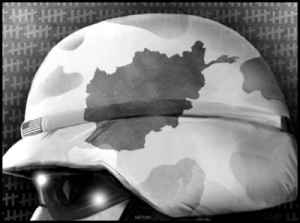- MENU
- HOME
- SEARCH
- WORLD
- MAIN
- AFRICA
- ASIA
- BALKANS
- EUROPE
- LATIN AMERICA
- MIDDLE EAST
- United Kingdom
- United States
- Argentina
- Australia
- Austria
- Benelux
- Brazil
- Canada
- China
- France
- Germany
- Greece
- Hungary
- India
- Indonesia
- Ireland
- Israel
- Italy
- Japan
- Korea
- Mexico
- New Zealand
- Pakistan
- Philippines
- Poland
- Russia
- South Africa
- Spain
- Taiwan
- Turkey
- USA
- BUSINESS
- WEALTH
- STOCKS
- TECH
- HEALTH
- LIFESTYLE
- ENTERTAINMENT
- SPORTS
- RSS
- iHaveNet.com
Joe Galloway

There are times when less is more and more is the wrong answer, and right now in Afghanistan would seem to be one of those times.
There are a lot of theories and proposals flying around as President Barack Obama and his national security advisers debate what our military and civilian arms of the government can do with the 8-year-old war in Afghanistan.
Gen. Stanley McChrystal, the commander on the ground, wants an additional 40,000 to 45,000 American troops thrown into the fight to reinforce the 68,000 in country by late November.
Without those reinforcements -- even though no one knows where we would get them in a military already stretched paper-thin and with troops as badly worn and tired by war as their equipment -- the general says our long and costly effort in that distant tribal land cannot possibly succeed.
Interestingly, McChrystal offers no prediction of success or anything remotely resembling success if he does get the additional troops that would, in any event, not get to the battlefield until late next year in any case.
Sure as death and taxes, though, I would expect the general to be back early next spring calling urgently for yet an additional 50,000 American troops to be thrown into the battle. If granted that would bring our troop strength to nearly 160,000 -- more than the late Soviet Union threw into their lost war in Afghanistan.
Our current objectives in Afghanistan, according to McChrystal's report to his bosses, include:
"(U.S. and
Oh yes. The primary benefit of success in Afghanistan would be to prevent a Taliban return to power, and Osama bin Laden and al-Qaida immediately returning to their old sanctuaries in Afghanistan.
Let's review the bidding now.
First, we are going to prop up the totally corrupt government of President Hamid Karzai, which is largely sustained by the money it siphons off American aid projects and the money earned from narco-trafficking. A government whose only notable success in its existence has been to take Afghanistan from zero opium poppy and heroin production under the Taliban government to the world's biggest producer of those miseries for the streets of Europe and the United States.
Somehow we are going to make that government and that president -- who recently stole the only popular vote election of a leader in the country's long, brutal history -- look good in the eyes of the people.
Next we are going to double or triple the size of the
Finally, we will pump in billions of dollars of our money -- hoping against hope that somehow the kleptocratic government we installed will stop stealing
And one more thing: There are no al-Qaida forces in Afghanistan today, so far as we know. Our strategic assumption is that they will return if the Taliban win this war, and thus pose an even greater threat to the United States than they do from their current locations in the Pakistan border areas, Somalia, a Hong Kong hotel room, Hamburg and Detroit.
We assume that the primitive but very adaptive Taliban will welcome back with open arms the very trouble-makers who led to their overthrow and exile and eight more years of war. We assume this even though there is not one whit of evidence that al-Qaida has been welcomed back to the half of Afghanistan where the Taliban currently rule.
Our modest suggestion, among so many others, is that President Obama tells Gen. McChrystal that our strategy has changed and he isn't going to need all those additional troops and additional dollars. That, in fact, he needs to begin planning a slow but steady drawdown from 68,000 Americans to a more sustainable and useful 15,000 Americans.
We can employ 10,000 of them in training Afghan Army and Police; 4,000 in support and logistics; and a thousand special operations troops to pursue al-Qaida targets in neighboring Pakistan with the recent effective Predator drone air strikes and keep watch over the border infiltration routes to ensure that al-Qaida does not come back into Afghanistan.
The choices before the president are hard ones. We can march ahead with an endless war we can't afford in pursuit of objectives we can't possibly achieve. Or we can lower our sights and our investment in lives and national treasure in pursuit of more modest objectives over the long term.
There is no point in doubling down if you hold a losing hand.